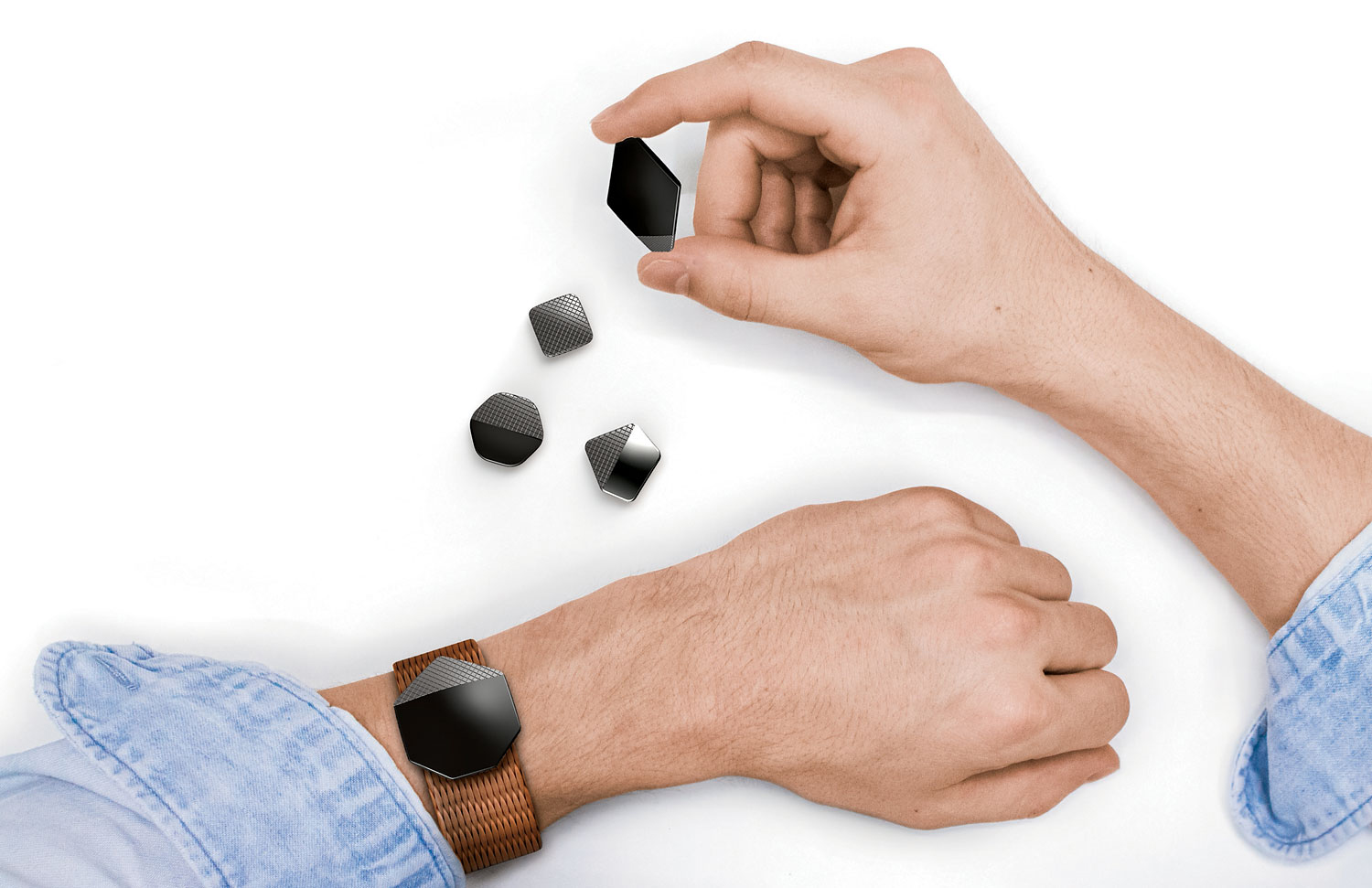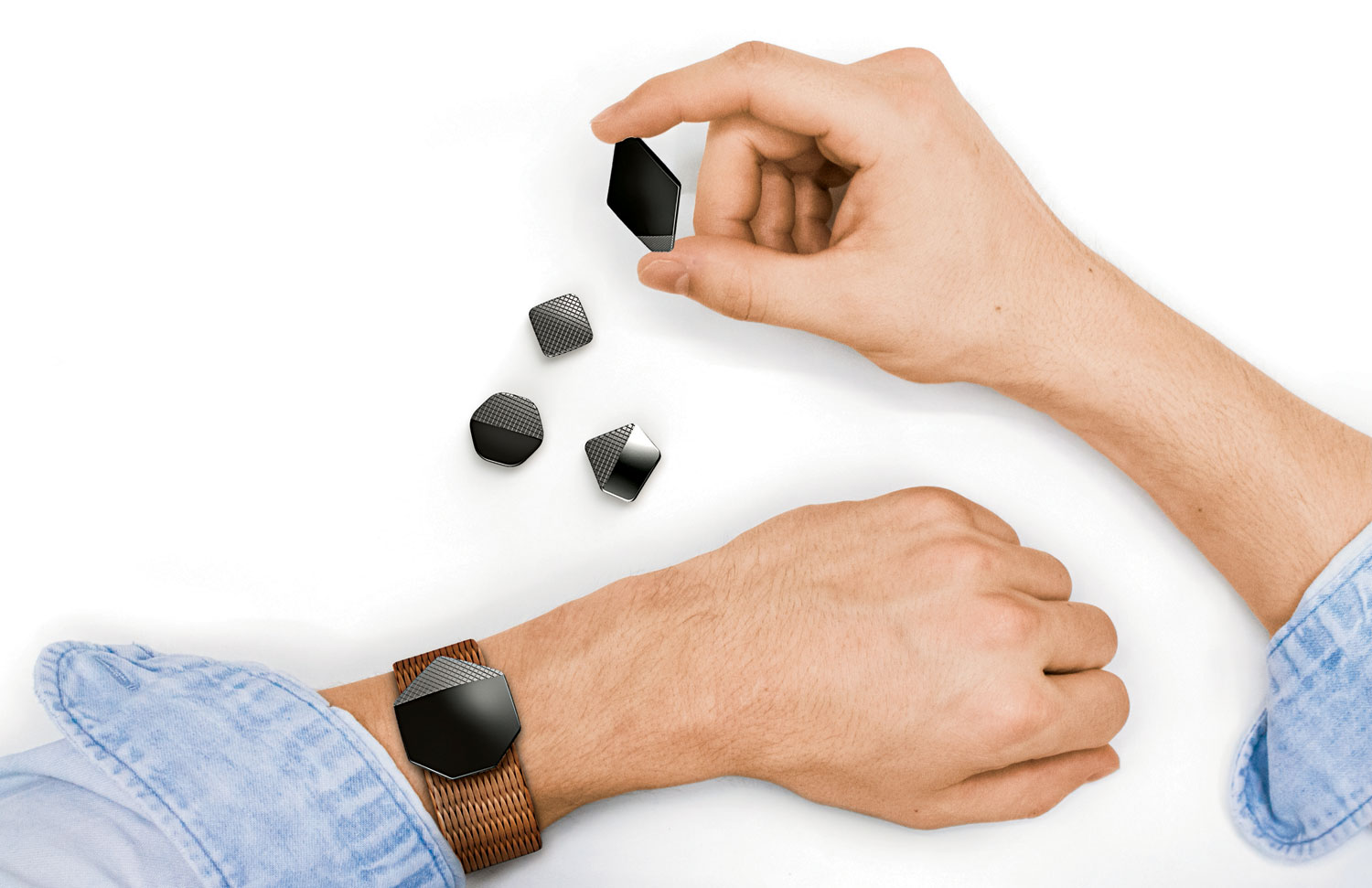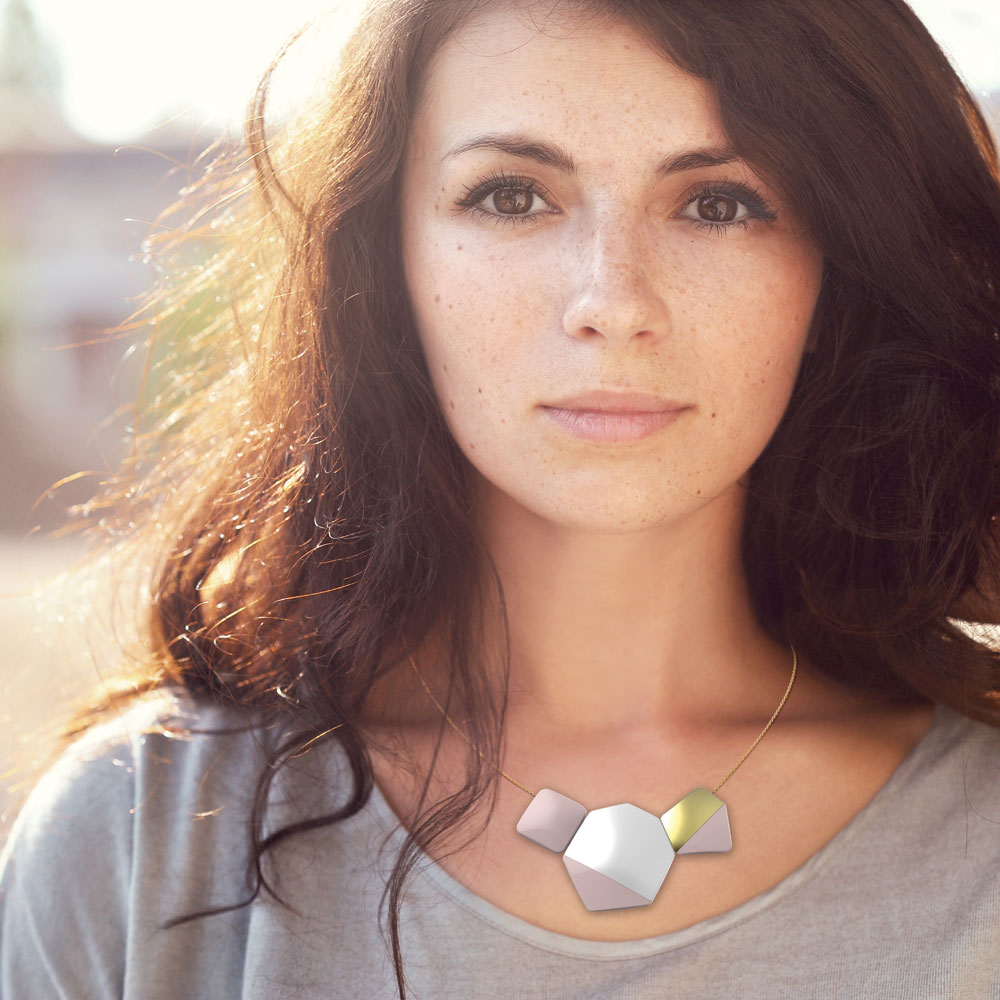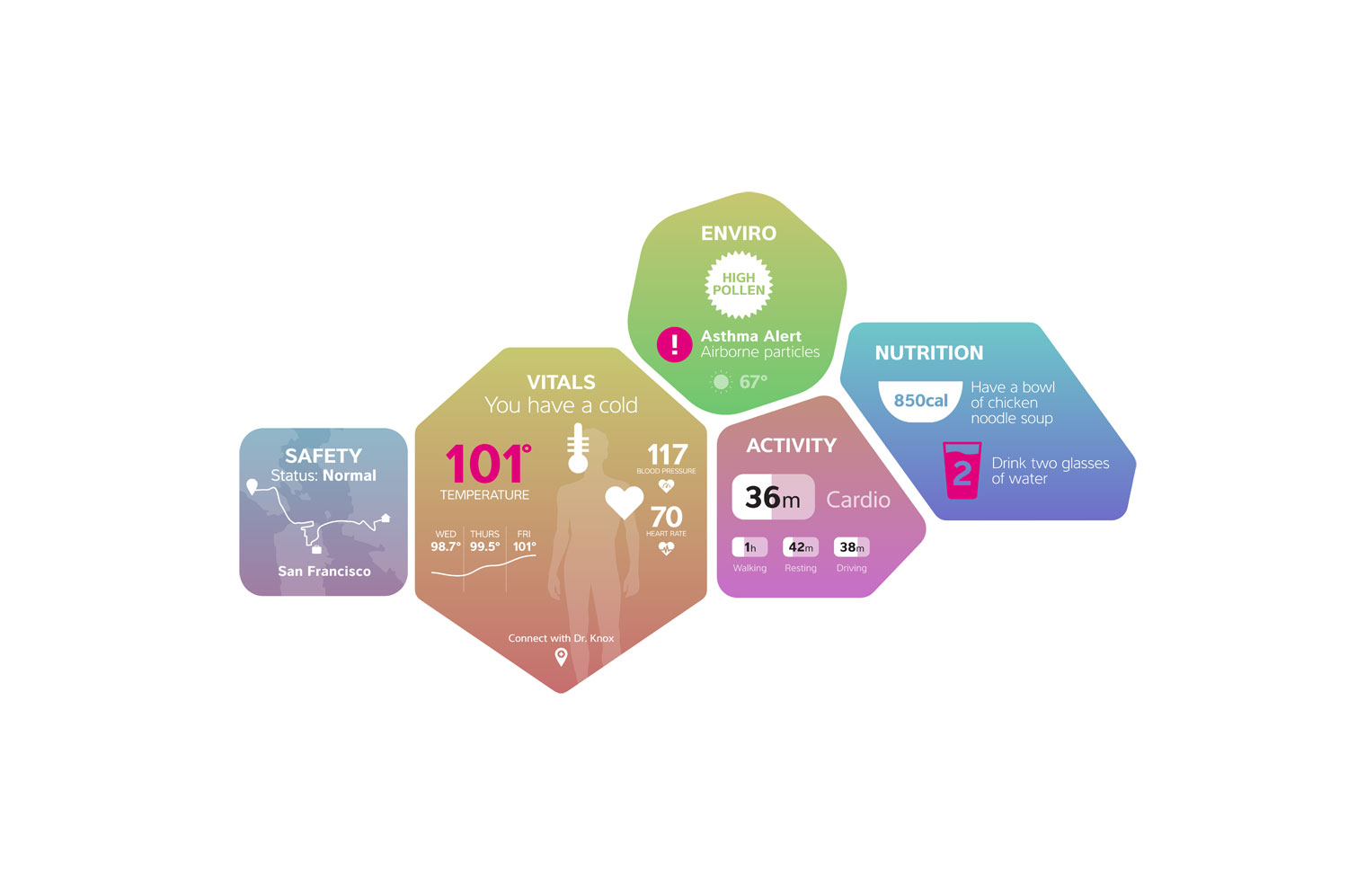
Chronic disease affects 2 out of 3 adults in the U.S., and it is estimated that 8% of the American population suffers from diabetes. Sixty-nine percent of Americans say they would like direct access to their health records. People want to keep track of their health–and we’d be better off as a society if people had an easy way to do so.
As luck would have it, mobile technology is bringing us closer to the day when we’ll be able to essentially wear our doctors. So when TIME asked me to propose an idea for how design can improve the world, my thoughts quickly turned to medicine. I call my concept–and for now, it is only that–LifeTiles: a wearable kit of sensors for monitoring individual health.
The sensors–designed to be aesthetically pleasing–would noninvasively monitor the user’s physical activity, environment and bloodstream. The information would be sent automatically to the cloud, where specialized algorithms could be used to monitor it and notify the individual with personalized feedback.
A user could also volunteer to donate his or her data, which would be made anonymous and shared with medical experts. Researchers could use the data to look for patterns, understand how disease works and find ways to prevent and cure it. Our doctors would always be with us–and everyone would benefit.
Béhar is the founder of Fuseproject and leads design and brand at Jawbone



More Must-Reads from TIME
- Donald Trump Is TIME's 2024 Person of the Year
- Why We Chose Trump as Person of the Year
- Is Intermittent Fasting Good or Bad for You?
- The 100 Must-Read Books of 2024
- The 20 Best Christmas TV Episodes
- Column: If Optimism Feels Ridiculous Now, Try Hope
- The Future of Climate Action Is Trade Policy
- Merle Bombardieri Is Helping People Make the Baby Decision
Contact us at letters@time.com